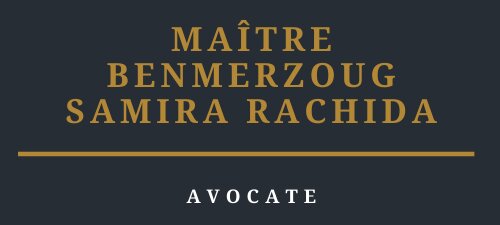Best Collaborative Law Lawyers in Blois
Share your needs with us, get contacted by law firms.
Free. Takes 2 min.
Free Guide to Hiring a Family Lawyer
List of the best lawyers in Blois, France
About Collaborative Law in Blois, France
Collaborative Law in Blois, France, offers a unique and cooperative approach to dispute resolution, where all parties agree to work together with their lawyers to reach an amicable settlement. This process is rooted in the principle of mutual respect and open communication. It's particularly popular for resolving family law matters, such as divorces and child custody arrangements, without resorting to contentious courtroom battles.
Why You May Need a Lawyer
Engaging a lawyer in Collaborative Law can be beneficial in several situations. These include instances where parties wish to maintain a amicable relationship post-dispute, such as ex-spouses aiming to co-parent children. It is also useful for resolving business disputes without sacrificing business relations or incurring high litigation costs. Lawyers specializing in this area help facilitate negotiations, ensure mutual respect, and guide parties toward cost-effective resolutions.
Local Laws Overview
In Blois, as well as throughout France, Collaborative Law is governed by a framework that emphasizes confidentiality, allowing parties to discuss and negotiate matters freely without fear of their words being used against them in court. Legal practitioners in this field must be specially trained in collaborative techniques. Unlike traditional litigation, any participating lawyer in a collaborative case may not represent their client in a courtroom if the collaborative process breaks down, encouraging a sincere effort to resolve matters harmoniously.
Frequently Asked Questions
What is the difference between Collaborative Law and traditional litigation?
Collaborative Law focuses on negotiation and mutual respect, avoiding court proceedings, whereas traditional litigation often involves adversarial courtroom battles.
Can Collaborative Law be used for all types of disputes?
While it is most commonly used in family law cases, Collaborative Law can also be effectively applied to business, employment, and other civil disputes.
Do all lawyers practice Collaborative Law in Blois?
No, only those who have undergone specific training in collaborative techniques practice Collaborative Law. It is important to seek out a lawyer specifically trained in this area.
What happens if the collaborative process fails?
If the collaborative process fails, parties must find new legal representation for courtroom litigation, as the collaborative lawyers involved are barred from participating in any subsequent court proceedings.
Is Collaborative Law cheaper than going to court?
Typically, yes. Collaborative Law often results in lower costs due to reduced court fees and time efficiency compared to traditional litigation.
Is the outcome legally binding?
Once an agreement is reached and documented, it is presented before a court to be made legally binding.
How long does the collaborative process usually take?
The duration depends on the complexity of the case and the willingness of parties to cooperate, but it generally takes less time than court litigation.
What role does a lawyer play in the collaborative process?
A lawyer assists in facilitating communication, providing legal advice, and ensuring that the interests of their client are represented and protected throughout negotiations.
Can Collaborative Law be used in international cases?
Yes, Collaborative Law can be adapted to international disputes, although it may require additional coordination across jurisdictions.
Is participation in Collaborative Law voluntary?
Yes, all parties must voluntarily agree to participate in the collaborative process.
Additional Resources
For those in Blois seeking guidance in Collaborative Law, legal aid offices or your local bar association can provide referrals to trained collaborative practitioners. Additionally, organizations such as the French Association of Collaborative Practitioners can also provide valuable information and support.
Next Steps
If you believe Collaborative Law may be the right approach for your situation, consider reaching out to lawyers in Blois who specialize in this area. Initial consultations can provide insight into how your case might proceed. Ensure you communicate your willingness to participate in a collaborative process, and verify that the lawyer has the required collaborative law training. This preparation will facilitate a smooth and constructive negotiation process.
Lawzana helps you find the best lawyers and law firms in Blois through a curated and pre-screened list of qualified legal professionals. Our platform offers rankings and detailed profiles of attorneys and law firms, allowing you to compare based on practice areas, including Collaborative Law, experience, and client feedback.
Each profile includes a description of the firm's areas of practice, client reviews, team members and partners, year of establishment, spoken languages, office locations, contact information, social media presence, and any published articles or resources. Most firms on our platform speak English and are experienced in both local and international legal matters.
Get a quote from top-rated law firms in Blois, France — quickly, securely, and without unnecessary hassle.
Disclaimer:
The information provided on this page is for general informational purposes only and does not constitute legal advice. While we strive to ensure the accuracy and relevance of the content, legal information may change over time, and interpretations of the law can vary. You should always consult with a qualified legal professional for advice specific to your situation.
We disclaim all liability for actions taken or not taken based on the content of this page. If you believe any information is incorrect or outdated, please contact us, and we will review and update it where appropriate.








